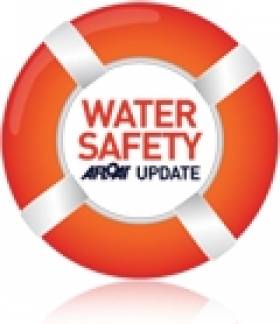Displaying items by tag: cold shock
Christmas Swim Water Safety Advice
#watersafety – Irish Water Safety is appealing to the public to take extreme care when taking part in sponsored swims. Participants can be distracted by the occasion and take chances beyond what is acceptably safe and can be left without sufficient strength to climb out of the water due to the cold. Cold winter waters can cause "cold shock" and hypothermia can set in within minutes, overwhelming the fittest of swimmers.
People organising Christmas swims should ensure that they provide comprehensive details of each event to the Irish Coast Guard and local Gardai.
Each event should have a Safety Officer appointed, who will advise those concerned on safety and have the ultimate responsibility for making decisions in relation to the swim being on or off on the day on the day dependent on weather and tidal conditions remembering that there is a new moon on the 22nd of December so there will be spring tides leading to strong tidal streams on Christmas day.
If the seas are rough and weather deteriorates, they should defer the event to a more suitable day without question and not take a chance on running the event.
Many participants will not have swum since the summer and the temperature of the water has now dropped from approximately 17°C to 10°C, therefore we advise inexperienced swimmers to wear a wetsuit.
It is a fallacy that alcohol will keep you warm when entering the water; in fact it has the reverse effect and could kill you. Irish Water Safety strongly recommends that no alcohol be taken either before the swim or after the swim and also remind people that they may be in breach of the drink driving laws when driving to or from the event.
Cold water can cause cold shock and hypothermia in minutes, because the temperature of the water at this time of year will be below 10°C. Christmas day charity swimmers occasionally remain too long in the water in a gesture of bravado and can find themselves left without sufficient strength to climb out of the water becoming unbalanced and disoriented due to them becoming hypothermic, two or three minutes is plenty of time in the water for the inexperienced. Remember shivering and teeth chattering are the first signs of Hypothermia.
Ensure that you have safe access and egress with appropriate shallow shelving or ladders as appropriate. People should be mindful that steps leading into the water might be dangerous due to the growth of algae..
Swimmers' remaining in the water for extended periods in a gesture of bravado is not acceptable. The message is "Get In, Get Out and Warm Up" and in the event of an emergency call the Coast Guard on 112.
Keep Animals Away from Frozen Ponds and Lakes
Belfast Coastguard, in warning the public about venturing out on thin ice said:
"There's no such thing as safe ice. If you do go through the ice, you could face frostbite, hypothermia and ultimately death if you are not rescued fast enough.
"If you're going out anyway in poor weather take your mobile phone with you; because it's cold out there, and you never know when you might need it in an emergency".
"Today in Northern Ireland, a dog drowned after falling through the ice at Enniskillen, Lough Erne. Remember to keep dogs on leads in danger areas, or avoid walking close to frozen lakes, rivers or ponds. Never go in the water after a dog - call the Emergency Services instead.
"If you do fall through the ice, try not to panic. You're going to take a deep breath when you go in, and you're going to suck some water in.
"You have to fight through that and that urge to panic. In that first stage, find something to hold on to whilst you're gasping and suffering from 'cold shock'. Once you get yourself calmed down, you're going to get really cold really fast. You're going to have about 10 minutes where you can actually do stuff and then your fine motor skills will start to fail, your fingers are going to be so cold, you're not going to be able to grab hold of stuff. You're going to have to pull yourself up with your elbows, your arms, and kick."
If you do fall in but are able to get out, you should roll yourself in the same direction to shore the same way you walked in because you know that area of ice is stable.






























































